Alive Water
What Are The Different Types of Water?
The genius of his time, Leonardo Da Vinci, rightfully noted – “Water is the driving force of all nature.” If you refer to scientific studies, look around or experience yourself, you will find water is miraculously benefitting every creature on earth. Even the natural, scenic beauty is incomplete without water. Moreover, not a single living organism can live without this majestic substance.
Scientists are still exploring the extraordinary properties of water. Every time they dive into this topic, they come across more surprising findings or a new dimension to study about this unique element.
We need a sufficient quantity of water every day to live healthy lives – approximately eight glasses a day. Also, to maintain the youthfulness of our skin and the health of our body organs, we need to hydrate properly. That’s why we can’t afford to compromise our water intake, both in terms of quantity and quality. Therefore, it’s necessary to understand the different types of water available to us and how they may affect us.
The Association of Our Water Intake and Risk of Certain Diseases
First, we need to understand that clean water is essential to our bodies, and contamination can be a disaster. There is a long list of diseases that we may have to face if we don’t hydrate ourselves, and also, there are certain diseases that we may get as a result of drinking “polluted or contaminated water.”
Medical science says that insufficient water intake increases the risk of life-threatening diseases such as bladder cancer, colon, and breast cancer. Are you wondering how it happens? Let’s elaborate further:
When you drink water, it dilutes the concentration of cancer-causing agents in the bladder. These agents don’t get accumulated in your bladder – you pass them out in the form of urine before they cause any harm to you. This helps reduce the chances of bladder cancer.
The study published in the European Journal of Clinical Nutrition suggests that fluid intake also decreases the risk of colon cancer. This is because liquid limits bowel transit time and reduces mucosal contact with carcinogens.
Similarly, research suggests that one can prevent breast cancer by managing weight and body metabolic functions. And what else can better manage your weight and metabolic system other than water? Make sure to read our blog on the importance of water that discusses water’s role in maintaining a healthy weight and proper metabolism.
With that said, let’s highlight once more that while hydration is a key to optimal health, the means through which you hydrate yourself also matter a lot. Ask yourself – is the water you drink the type of water your body needs?
What are the 7 Types of Water?
1. Mineral Water
As the name suggests, mineral water is the type of water with natural salts present. The minerals such as magnesium, calcium, sodium, bicarbonate, sulfate, chloride, Potassium, and fluoride can be found in varying quantities in this form of water. The amount of salts depends on the source of water.
Primarily the source of mineral water in underground reservoirs. The water companies collect, bottle, and sell this water to us as “ Mineral water.” However, mineral water can also be artificial.
Pros
- Mineral water contributes to the health of your heart, primarily by balancing out the level of good and bad cholesterol. The presence of magnesium in mineral water helps maintain a healthy heartbeat.
- Minerals in the water may help remove toxins from our bodies. However, the excess of it can be bad for your health.
- The content of calcium and magnesium in the water can help strengthen your bones.
- If you have any constipation-related problems, mineral water may help. A research study proves that drinking magnesium and sulfate-rich water every day can significantly improve bowel movements and relieve constipation symptoms.
- Due to salts, mineral water has a taste in it, and many people prefer to drink this type of water because of its superior taste and ability to quench thirst.
Cons
- We generally get mineral water in bottles, and if those bottles are made up of plastic, it may have certain health risks. Most of the plastic containers have bisphenol A or BPA. This chemical may ruin normal hormonal functions and can even lead to hormone-related cancer.
- Mineral water is not suitable for those who have been prescribed a low sodium diet.
- In case you are drinking carbonated mineral water, it may cause hiccups and bloating. Not only this, but carbonated mineral water may also damage your teeth.
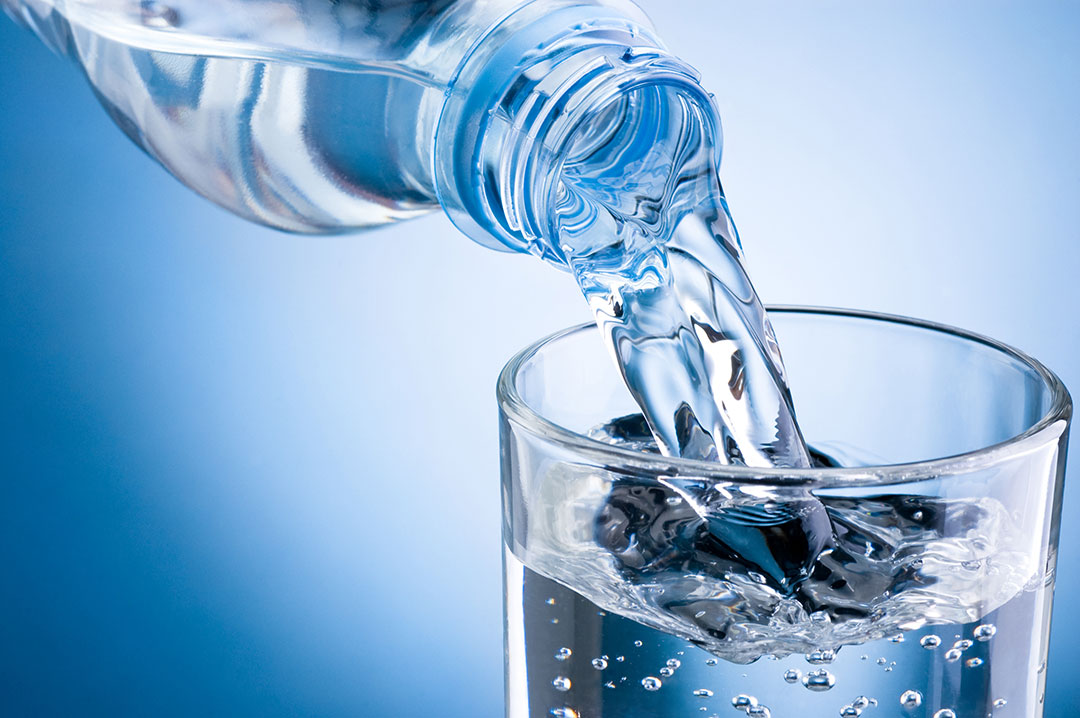
2. Distilled Water
Distilled water is the type of water that has no minerals and salts in it. This water undergoes a process called distillation, thus its name. During this procedure, water is boiled to the extent that it becomes steam, and all the salts are separated. The steam is then captured and cooled to make a distilled form of water. Any form of water can be used to make distilled water, including tap water, well water, streams, snow, or seawater.
Distilled water is drinkable, but mainly it is used in laboratory experiments, watering plants, car cooling systems, or certain medical devices.
Pros
- The key benefit of distilled water is that it has no containment as it undergoes a vigorous process of removing minerals and impurities. In case you are confident that your water supply has chemicals or bacteria in it, it is better to choose distilled water.
- It is suitable for immunocompromised people.
- Distillation removes the nasty chlorine taste in water which you may experience in filtered water.
Cons
- Drinking distilled water may cause severe mineral deficiency and may slow down the metabolic processes.
- Because it doesn’t have a taste, distilled water is reported to be less thirst-quenching.
- Consuming distilled water may result in electrolyte imbalance. So it is not recommended for infants, athletes, and people who have cancer.
3. Spring Water
Spring water is the water that comes from an aquifer or through a borehole. Usually, this type of water doesn’t go under any treatment. Spring water has all the natural nutrients and is generally considered pure. However, some bottles are merely labeled as spring water, but they are just the ordinary tap water that has gone through artificial treatment.
The quality of spring water depends on the type of aquifer and rocks (through which the water has passed). Many people prefer drinking it over other water sources because of the natural mineral content and less artificial purification.
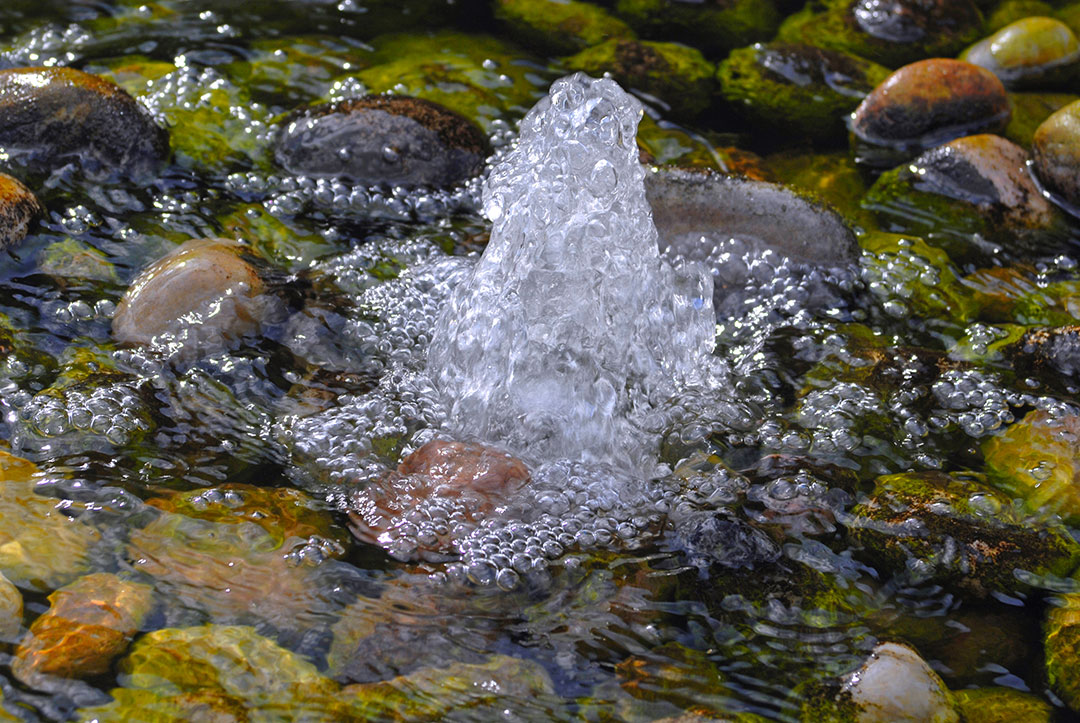
Pros
- Spring water has a sufficient amount of water minerals that are necessary for our bones.
- It has a unique taste.
- This type of water is readily available in stores.
Cons
- Bottled spring water is relatively expensive.
- If the spring water is bottled, remember that some of the plastic material may leach into the water and make its way to your stomach.
4. Well Water
Around 43 million people in the U.S., which is 15% of the population, depend on private wells as their water source.
Wells are amongst some of the oldest ways of collecting water from underground sources. Today, this type of water is also called groundwater. A hole is dug into the ground to find water, and then the water is pumped out for consumption purposes. This water can be used for drinking and various household activities. Surprisingly, on average, the life of a well can be around 30-50 years.
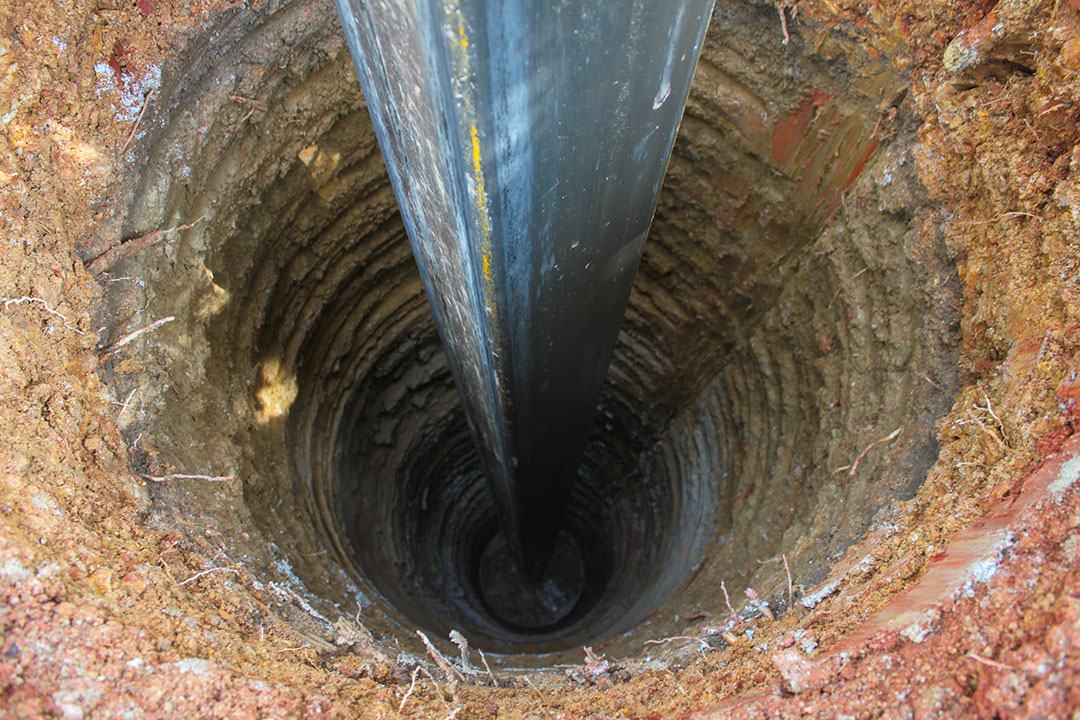
Pros
- Well provides a nearly endless supply of water.
- It is the most cost-effective way to deliver water to your home.
- Wells have long life spans (30-50 years).
- They are a great way to attain water in almost any region.
Cons
- According to the United States Geological Survey, a study conducted on around 2100 domestic wells proved that out of five well water samples, one contained some levels of contaminants. The contamination was found to be greater than the benchmark set for human drinking water.
- Unlike the other types of drinking water, the water from wells is usually not regulated by government departments.
An article published in The Washington Post mentions that, according to scientists, people who drink well water are at double risk of getting cancer. Therefore, if you are consuming this form of water, you need to utilize a proper water filtration method.
- Another obvious disadvantage is that sometimes well water smells and tastes unpleasant.
5. Purified Water
As the name suggests, purified water is just like distilled water that undergoes a thorough filtration process to get rid of all the impurities. These impurities include bacterias, parasites, or certain metals and chemicals. During the filtration process, the water also loses all the mineral content in it.
The commonly used process in purified water includes filtration, distillation, and reverse osmosis.
Purified water doesn’t necessarily come from natural resources. Moreover, it may be your ordinary tap water filtered and bottled. Because all the contaminants are removed, this water is safe for drinking purposes. But again, if it’s bottled water, you aren’t 100% secure.
Pros
- An obvious advantage is that purification eliminates the contaminants from water.
Cons
- This water has no taste since all the essential minerals are removed.
- Due to the lack of minerals in purified water, you can’t say that it’s healthy for you. For example, the process of purification removes fluoride from tap water that helps fight against tooth decay.
- Sometimes, purification doesn’t remove all the contaminants, and lab tests still have shown some amount of pollutants in it despite being marketed as “pure.”
6. Sparkling Water
You get sparkling water by dissolving carbon dioxide gas into the water. Although this type of water used to be just a natural phenomenon, nowadays, the water brands artificially induce CO2 into the water. Resultantly, tiny bubbles appear that make the water “sparkling.”
Pros
- Even though sparkling water has carbon in it, it hydrates well.
- Sparkling water helps manage weight as it helps improve food digestion.
- It gives a feeling of fullness.
- Drinking sparkling water improves digestion.
- Sparkling water has a unique taste that many love.
Cons
- Sparkling water may cause bloating and burping.
- If the sparkling water has added sugar content in it, it can have side effects.
- The excessive intake of carbonated water may damage your teeth, in particular, if it has added sugars or other additives. Moderation is the key, even if you like drinking this fizzy drink.
7. Tap Water
This water is the ordinary water that you get from your home faucets. This is usually the local municipal-supplied water used for drinking, showering, gardening, doing laundry, and many household chores. Tap water is collected from lakes, underground, and rivers. Later the water is treated in public plants and supplied to the communities.
In most developed countries such as the U.S. and Canada, this form of water is regulated by the government and is made safe for drinking. However, still, people find it risky and spend thousands of dollars on drinking bottled water.
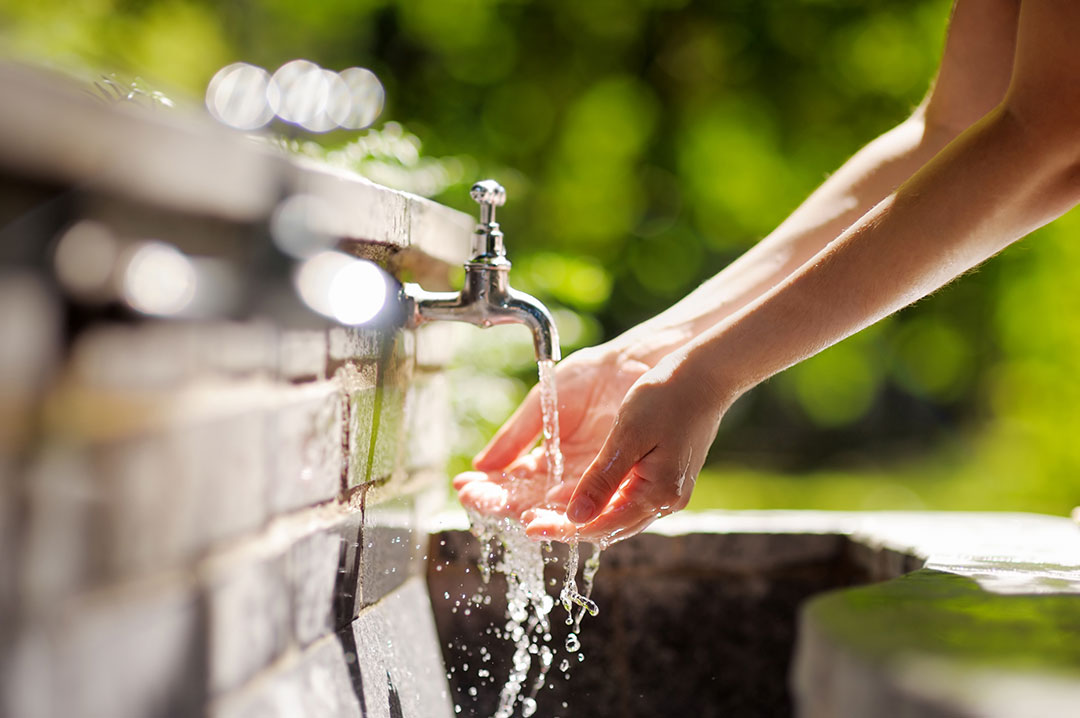
Pros
- Tap water is convenient to use as you don’t have to worry about allocating a certain budget for your water bottles.
- Tap water has essential minerals in it.
- It doesn’t have as much hazardous impact on the environment as bottled water does.
Cons
- There are chances that your tap water has some form of pollutants in it. In particular, if you are not taking any measure to make it safer for you. To avoid any form of gastrointestinal problems, diarrhea, or other stomach-related issues and to make it more beneficial, it is suggested to give your tap water treatment.
- Tap water is depleted from natural structure and vitality. As mentioned above, it is treated by municipalities, which consists of pumping, pressuring, and putting water in narrow pipes. This disturbs water’s natural molecular structure and makes it less hydrating and harder to absorb. Moreover, tap water loses its self-cleaning properties, which makes it a hospitable environment for bacteria. Not to mention added chlorine, which dries out skin and scalp.
Treat Your Tap Water – The Vortex Water Revitalizer™
One excellent option to treat your ordinary tap water is to use an evolutionary technology in water treatment called The Vortex Water Revitalizer™. This device is designed to simulate the natural movement of water and reverses the harm caused to it during its passage.
Revitalized water is superior in hydration. Our body absorbs it quickly, making drinking large quantities easier; thus, you can consume sufficient water without feeling heavy.
The advantages of using revitalized water go above and beyond hydration. See the in-depth guide of The Vortex Water Revitalizer™’s benefits for more.
Conclusion
The usefulness of water for every living creature on earth is undeniable. Hydration is essential to our body’s function. We need to be wise in choosing which type of water is best for us. Using your tap water can be an excellent choice, provided you treat it with The Vortex Water Revitalizer™ – the treatment that will change the way you experience the water.


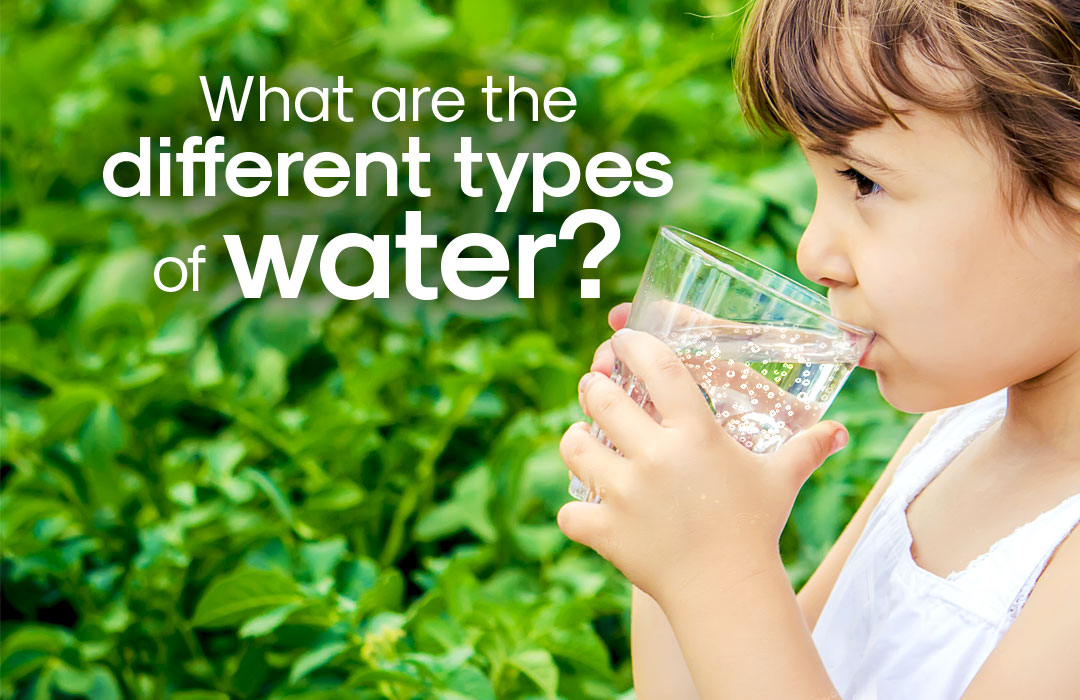
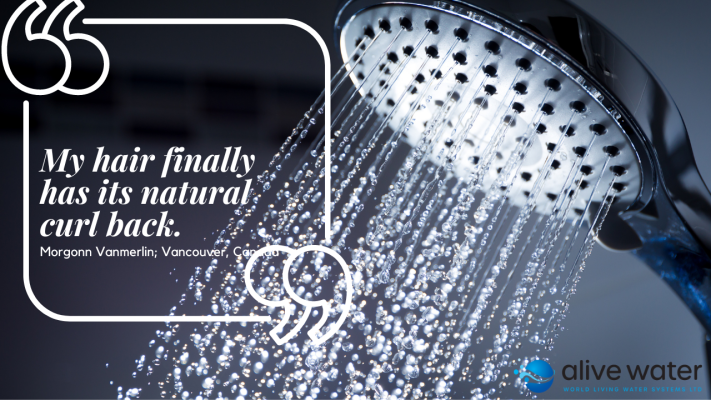



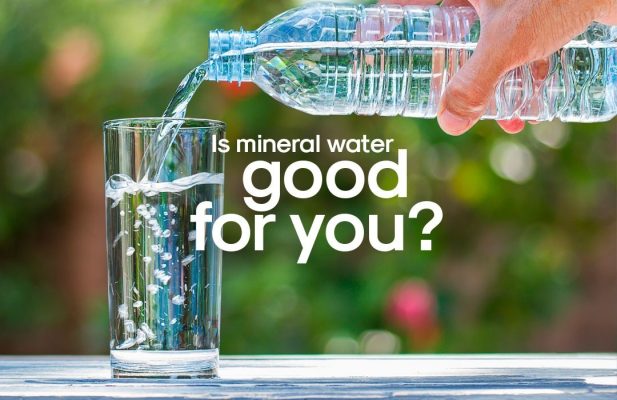



You mentioned fluoride as a good thing? According to a Harvard Public Health Magazine article, excessive fluoride causes fluorosis, which is a defect in tooth enamel that ranges from barely noticeable white spots to staining and pitting. Fluoride can also become concentrated in bone, stimulating bone cell growth, altering the tissue’s structure, and weakening the skeleton. In addition, some studies have suggested that high levels of fluoride exposure during early childhood may negatively impact cognitive development. Additionally, rat studies showing an increased amount of osteosarcoma at various fluoride levels. Other halides like bromide and chloride can be toxic. Just fyi
I fully agree. I have never been a fan of the use of fluoride neither in water or tooth paste.
I have not yet cleaned up my site/blog from mistakes made by various freelancers working under a marketing team, which took care of alivewater.ca and created it. My main official website is more authentic and educational and is for sure not misleading. Thanks for pointing this out. Any other people who find something off the wall, please email me directly at mi****@********er.com